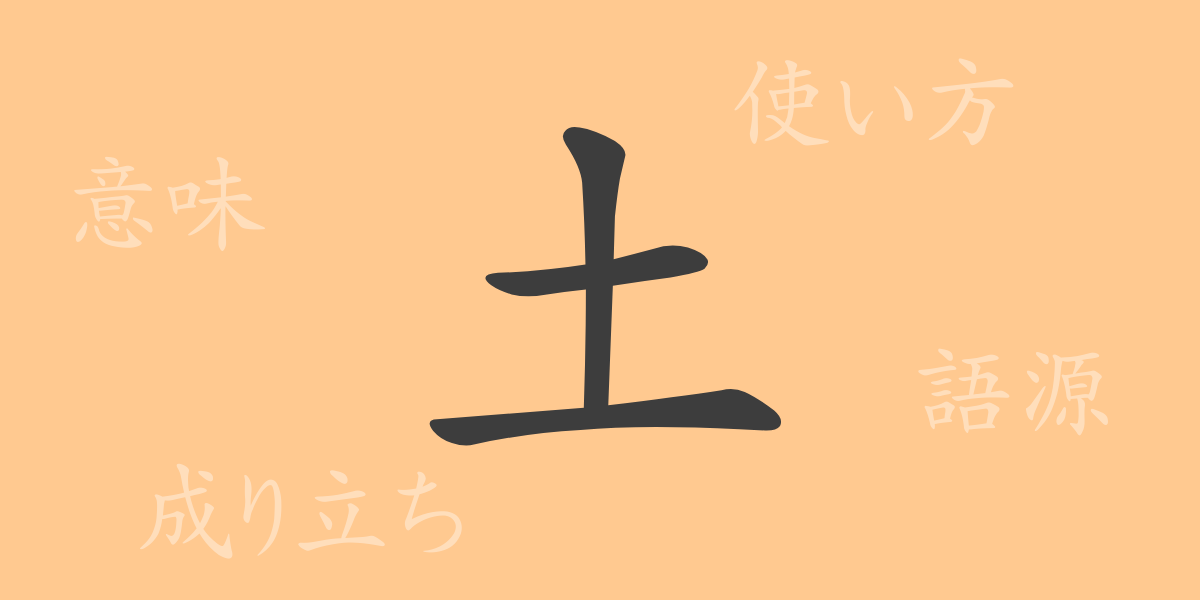Japanese culture is intricately linked with its complex writing system, where each kanji holds profound meanings. Among these, ‘土(ド, ト)’ is a kanji frequently encountered in various contexts, deeply embedded in our daily lives. This article explores the origins, meanings, usage, readings, and idiomatic expressions related to ‘土’, providing insights into its historical and cultural significance.
Origins of ‘土(ド, ト)’
The kanji ‘土’ evolved from ancient Chinese pictographs. Originally depicting the action of digging the earth, it symbolized land and territory. Over time, this representation transformed into the current character ‘土’, which made its way to Japan, acquiring various meanings in the Japanese language.
Meaning and Usage of ‘土(ド, ト)’
Primarily, ‘土’ represents ‘soil’ or the substance that forms the ground. It also denotes land or place, and in the context of the five elements (wood, fire, earth, metal, water), ‘土’ symbolizes earth, suggesting stability and balance. Metaphorically, it is used to indicate the foundation or base of something, highlighting its fundamental nature.
Readings, Stroke Count, and Radical of ‘土(ド, ト)’
It is essential to be familiar with the readings and structural elements of ‘土’ given its frequent usage:
- Readings: On’yomi are ‘ド’ and ‘ト’, Kun’yomi is ‘つち’
- Stroke count: ‘土’ consists of 3 strokes
- Radical: The radical is itself ‘土’, which is categorized under earth-related kanji
Idioms and Proverbs Using ‘土(ド, ト)’
There are numerous idioms and proverbs that incorporate ‘土’, each carrying unique meanings and lessons:
‘土壇場(どたんば)’ refers to a critical moment or extreme condition. ‘土台無し(どだいなし)’ denotes the lack of a solid foundation, teaching the necessity of a robust base for any endeavor. ‘土下座(どげざ)’ describes a deep apology, originating from the act of sitting prostrate on the ground, facing downwards.
Conclusion on ‘土(ド, ト)’
The kanji ‘土’ holds meanings far richer than its simple appearance suggests. From representing the physical ‘soil’ that forms the earth to metaphorically denoting ‘foundation’ or ‘base’, its uses are extensive. As an element of the five phases, ‘土’ symbolizes the interconnections between nature and humanity. The idiomatic expressions involving ‘土’ reflect Japanese values and philosophies, offering insights into the cultural and historical narratives embedded in the language. Understanding ‘土’ enriches our mastery of Japanese, unlocking deeper meanings woven into everyday life.

























